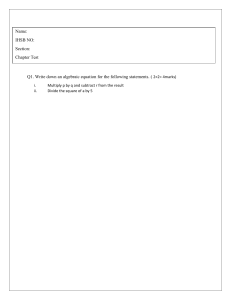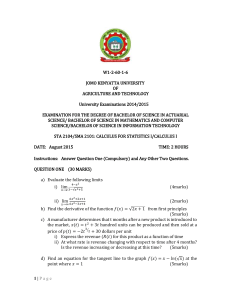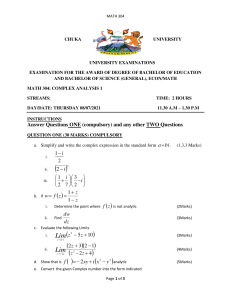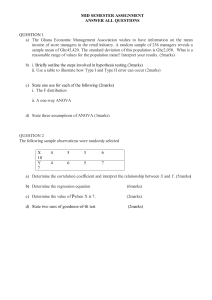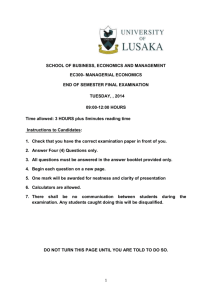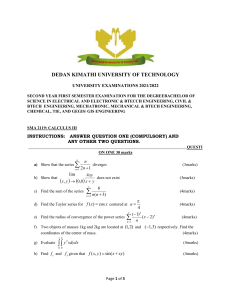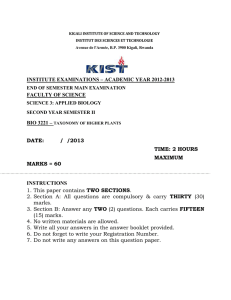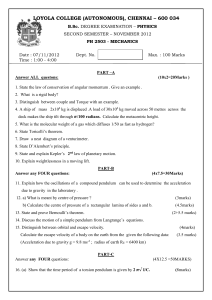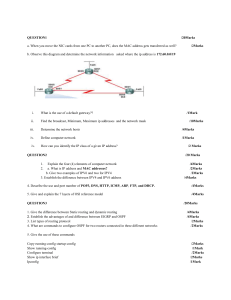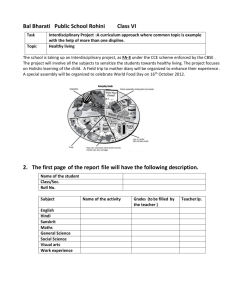Suppl Y1 Inorganic C..
advertisement
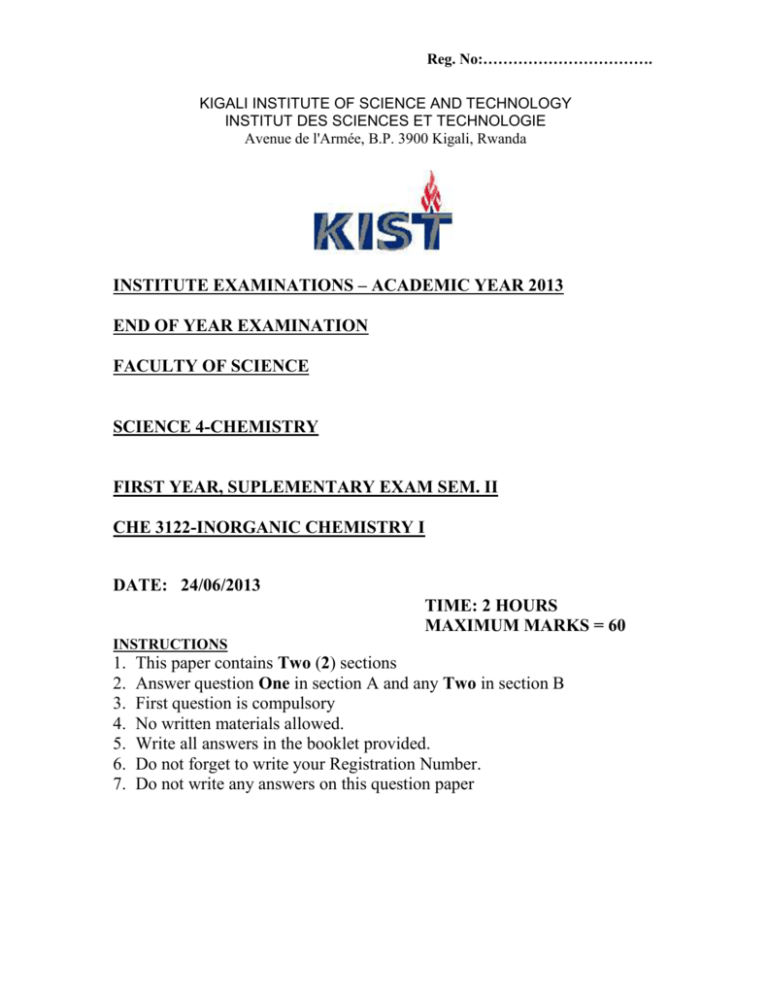
Reg. No:……………………………. KIGALI INSTITUTE OF SCIENCE AND TECHNOLOGY INSTITUT DES SCIENCES ET TECHNOLOGIE Avenue de l'Armée, B.P. 3900 Kigali, Rwanda INSTITUTE EXAMINATIONS – ACADEMIC YEAR 2013 END OF YEAR EXAMINATION FACULTY OF SCIENCE SCIENCE 4-CHEMISTRY FIRST YEAR, SUPLEMENTARY EXAM SEM. II CHE 3122-INORGANIC CHEMISTRY I DATE: 24/06/2013 TIME: 2 HOURS MAXIMUM MARKS = 60 INSTRUCTIONS 1. 2. 3. 4. 5. 6. 7. This paper contains Two (2) sections Answer question One in section A and any Two in section B First question is compulsory No written materials allowed. Write all answers in the booklet provided. Do not forget to write your Registration Number. Do not write any answers on this question paper SECTION A 1. i) What is the main source of boron? Outline the steps in the extraction of boron. ii) Characterize briefly the chemical properties of group IA element (4marks) (4marks) iii) What are the most common oxidation states of carbon and tin? Explain the difference? (4marks) iv) Review the use of Fluorine (4marks) v) Explain the process of photosynthesis by which the oxygen has been produced (4marks) SECTION B 2. a) How does diborane react with i) ammonia, (2marks) ii) boron tribromide and (2marks) iii) trimethyl boron ? (2marks) b) i) Outline the reactions that take place in hydrogen manufacturing from natural gas(methane) (4marks) ii) Explain why the melting point boiling point in group I and group II decrease down the group and increase down the group in halogens group. (4marks) c) i) Draw the structures of diamond and graphite, ii) explain the difference in density between diamond and graphite, iii) Explain the difference in electrical conductivity between diamond and graphite, iv) Which allotropic form of C has the lowest energy? 3. (6marks) a) i). Explain the paramagnetic character for dioxygen using the molecular orbital theory (5marks) ii). Give all oxidation states with the compound corresponding for nitrogen (5marks) iii) Explain the availabilities of the orbital for getting the xenon compounds as XeF2, XeF4 and XeF6 , Give their composition ratios (5marks) b) i) List as many ways as possible the preparation of CO and CO2. ii) What are they used for? (5marks) 4. a) i) How would you define a transition element? List the properties associated with transition element ii) Suggest reasons why PF5 exist but NF5 is not. iii) Give the formulae of 11 interhalogen compounds, (5marks) (4 marks) (4 marks) b) How do the following properties vary in the transition element: i ) ionic character ii) basic properties (2marks) c) In which ways does the filling of the 4f energy level affect the rest of the periodic table? (5marks) Good Luck!!!!!
